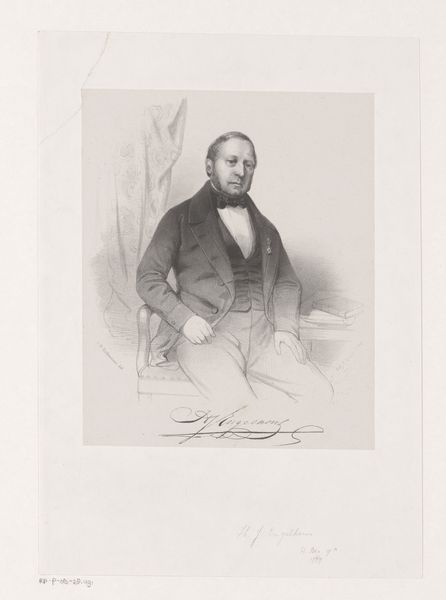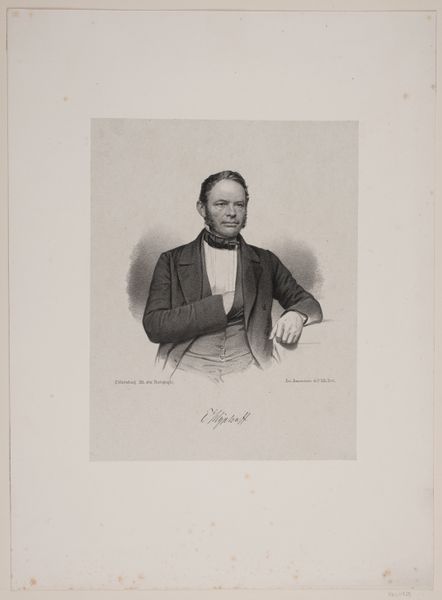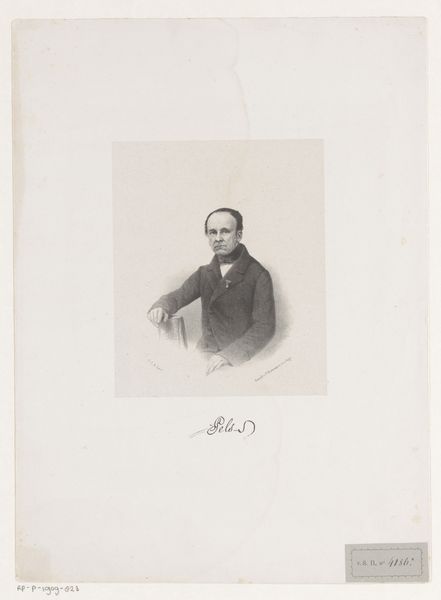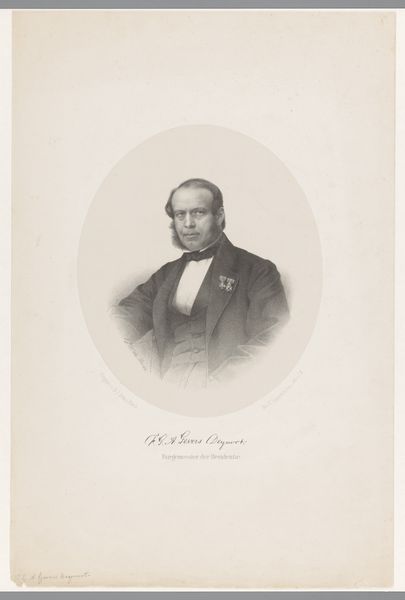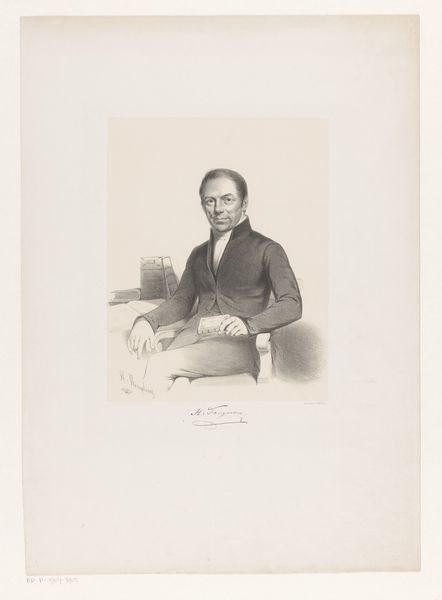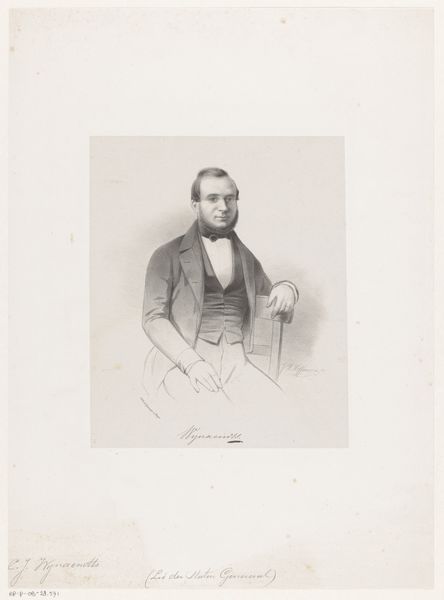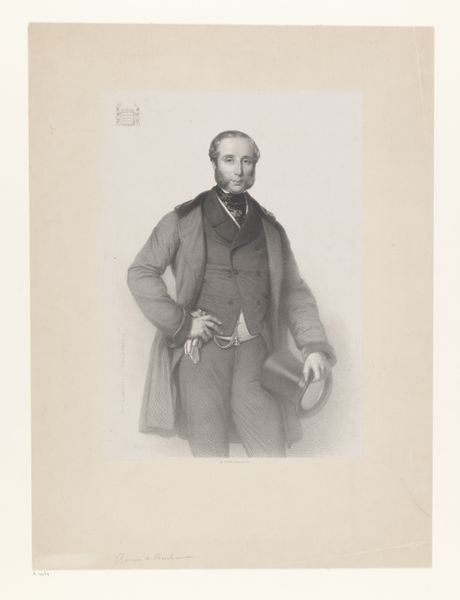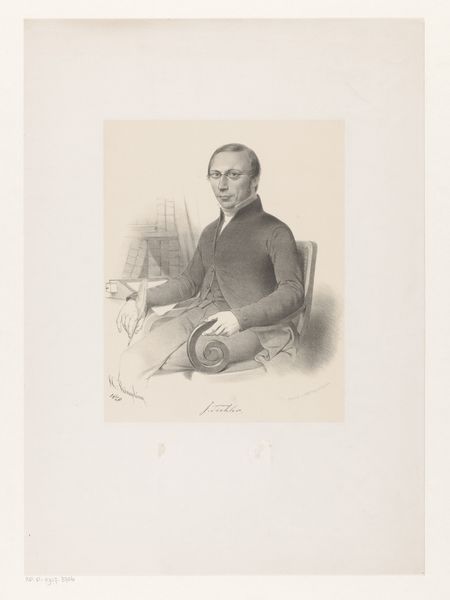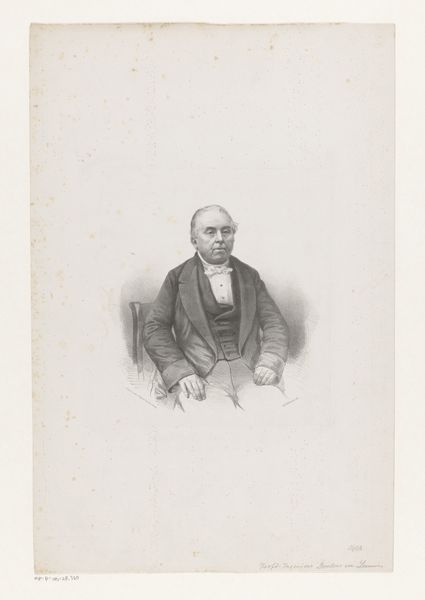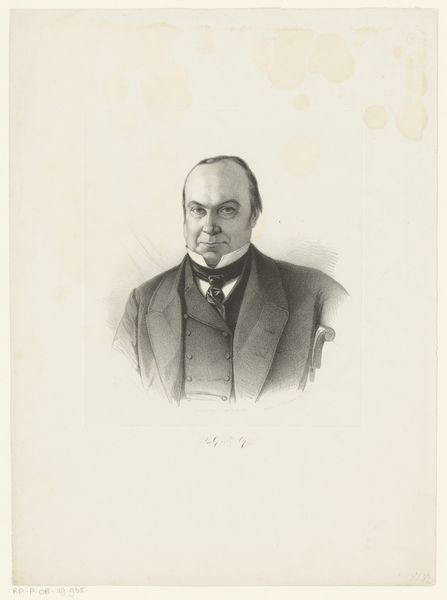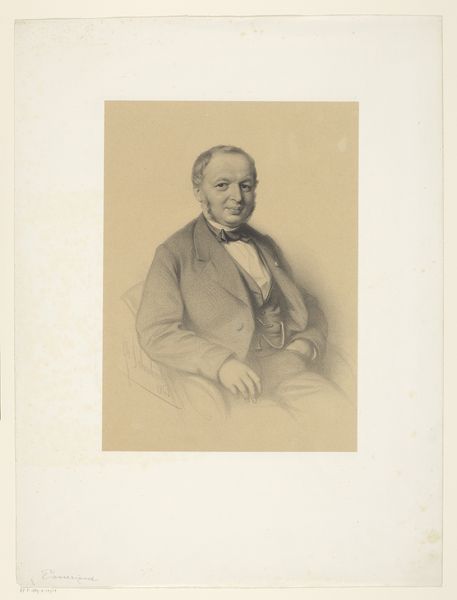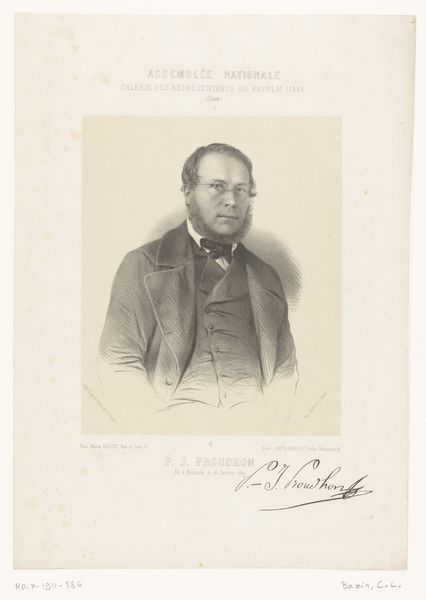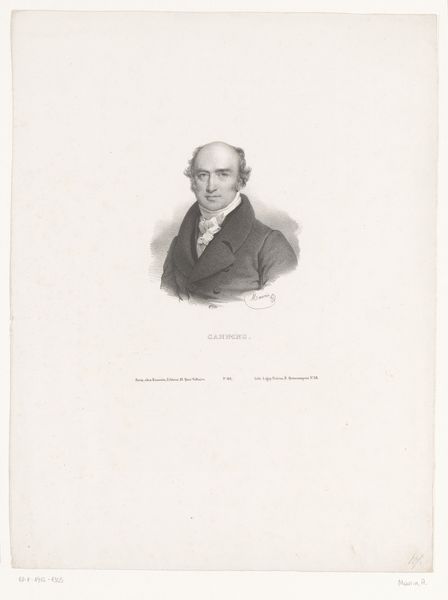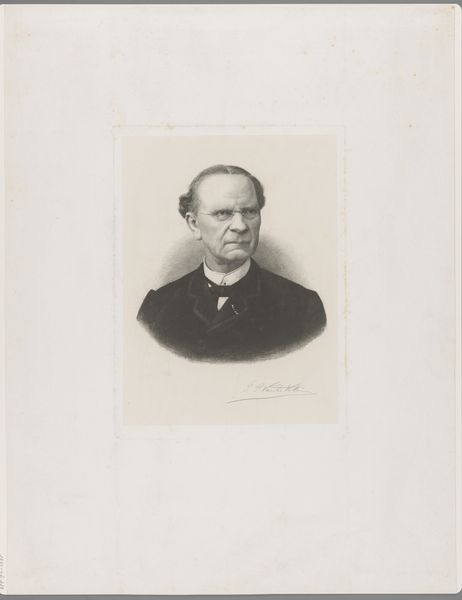
drawing, print, pencil
#
portrait
#
pencil drawn
#
drawing
# print
#
pencil sketch
#
pencil drawing
#
pencil
#
academic-art
#
realism
Dimensions: height 515 mm, width 382 mm
Copyright: Rijks Museum: Open Domain
Curator: Here we have "Portret van Daniel Chantepie de la Saussaye," a drawing rendered in pencil, sometime between 1851 and 1874, attributed to Johan Hendrik Hoffmeister. Editor: It’s quite stately. The figure's pose and clothing suggest a certain bourgeois confidence, and the soft grey tonality evokes a quiet, almost contemplative mood. Curator: Indeed. Observe the academic style in its realistic depiction and attention to detail. Hoffmeister employs a range of marks to articulate form, achieving tonal modulation through hatching and stippling. Editor: Considering the material – pencil and paper – it brings a tangible sense of the hand, a deliberate craft, one might ponder the paper's source, the pencil's graphite, even the artist's labour. This was a physical transaction, not just an artistic statement. Curator: A very valid point. Beyond the materiality, consider the semiotic readings: The subject’s attire, his composed demeanor – these project social status. The chair acts as a throne, structuring a formal reading of power. Editor: Did this power reflect broader socio-economic forces? The drawing may have served as propaganda legitimizing social hierarchies or capturing a patron's affluence at a time marked by increasing industrial labor unrest. How was this image consumed, and who benefitted from its circulation? Curator: We can surmise that this piece was most likely intended for viewing by the upper classes, reflecting academic notions of elevated taste. Editor: Right, it is not only the final "art" we should be examining but also the process from material sourcing, the physical act of creating, all the way to its market and audiences that constitute its comprehensive meaning. Curator: Examining "Portret van Daniel Chantepie de la Saussaye" through this conversation reveals much about Hoffmeister's technical skill and a specific societal context. Editor: Precisely, art never floats free of its own world but is rooted in and actively reflects tangible production processes and material concerns.
Comments
No comments
Be the first to comment and join the conversation on the ultimate creative platform.
